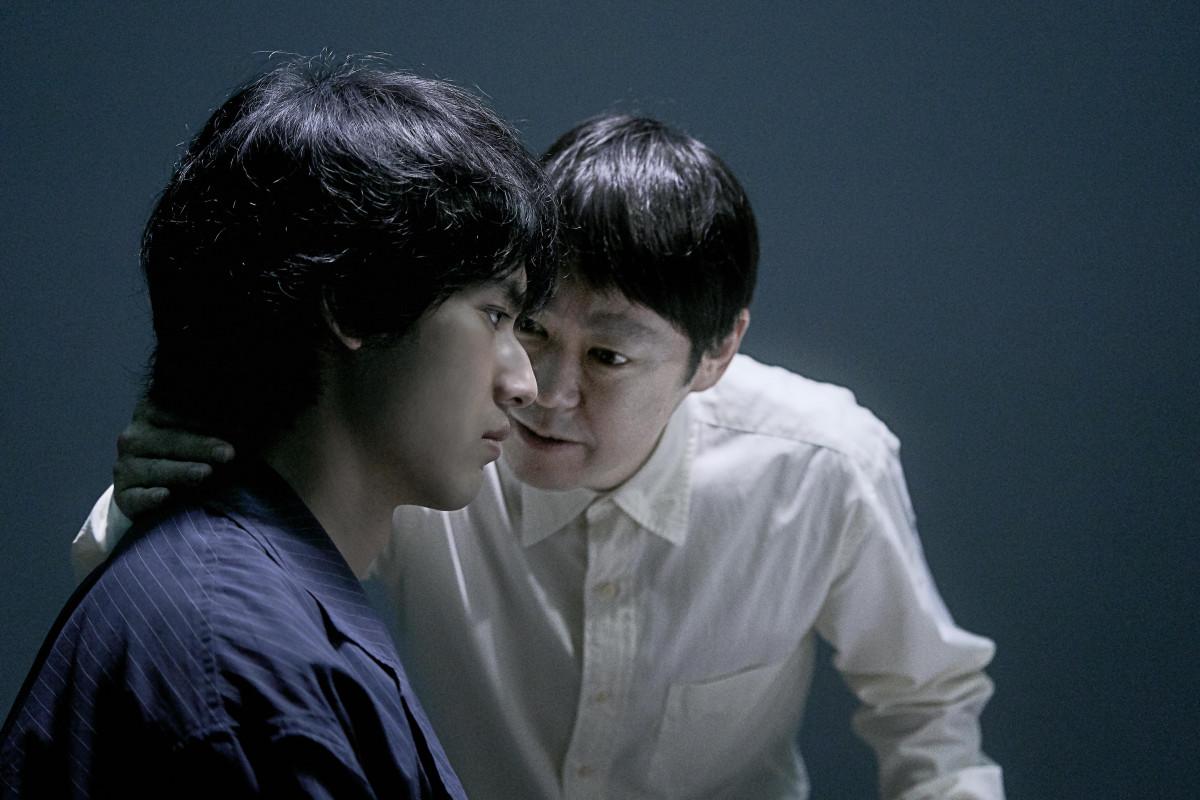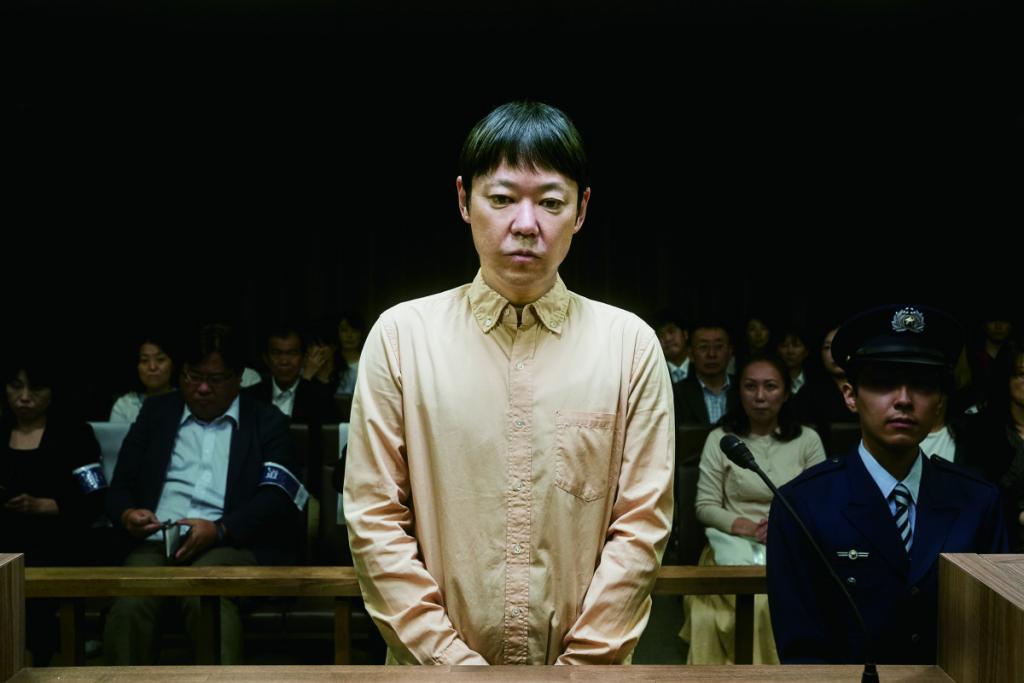
Anyone new to the work of director Kazuya Shiraishi might already be keen on his unabashed directing style. For those who haven’t seen some of his previous work like the more robust The Blood Of Wolves and it’s sequel, The Last Of The Wolves, are welcome to check the aforementioned titles out at a latter point sometime, with his latest, Lesson In Murder, able to serve as a bit of a soft opener into the chilling and gruesome.
A slow-burn crime procedural in its entirety, we watch as Masaya Kakei (Kenshi Okada), a terse, meek young adult fresh into college just as he and his family are in mourning from the loss of his grandmother, is thrust into an intrinsic journey when he receives a letter from Yamato Haimura (Sadao Abe), his former childhood baker who is now incarcerated and on trial for torturing and murdering nearly two-dozen teenagers. Driven to pay Haimura a visit and upon their reunion years since Kakei was a much younger teenager, it is right then that Kakei is compelled to seek justice when Haimura informs him that the prosecution didn’t complete its investigation for the murder of the ninth victim, and that her killer may possibly be walking free. Kakei joins the firm of Haimura’s legal representative as a part-time employee, and uses his position to investigate the case from top to bottom. The closer to the truth Kakei gets, the deeper the rabbit hole goes, and a darker twist is revealed that will force Kakei to reanalyze everything he believed about himself, his own family, and the truth.
That’s about as cut and dry as I can explain as far as the plot goes without giving away too many details, although it’s worth mentioning that this film does stray into horrific imagery at times with gruesome scenes of torture and gore, which makes this film far less suitable for anyone with a soft stomach. It’s not as in-your-face as is the first opening moments of The Blood Of Wolves, per se, but the introductory shot of a man dropping creepy looking things that aren’t flower pedals sure is…well, something.
As far as character performances go, there’s plenty to dive into in terms of the nuances and complexities that come with a character like Kakei. For all intents and purposes, he’s a good kid and mostly on the straight and narrow with focus on himself and school. He keeps to himself most of the time, however, and that ultimately draws some otherwise cumbrous moments for him, particularly when he bumps into old childhood friend Akari (Yu Miyazaki), and for a good bulk of each time, she always shows concern.
Their connection eventually leaves off a little something at the end of the film, while throughout the exposition and development, audiences can expect a lot more focus into Kakei and observing what drives him toward learning more about Haimura and his case, and the mental affect it eventually displays. He finds himself in some really dark and violent places, including one scene where he confronts someone for bumping into him. The way this scene is constructed speaks inherently to what Kakei is seemingly becoming.
The film entrenches itself even more into topics pertaining to generational trauma and abuse, and thereby does exponentially well in highlighting the role Haimura plays with respect to another mysterious character by the name of Ikki (Takanori Iwata). And again, this also takes Kakei into an unchartered area of his own afflicted family history and legacy, and it all culminates into a psychological showdown that fully gets unraveled through a complex, albeit humanistic lens. Abe’s performance as the deceptively kind-faced and menacing Haimura lands heavily on screen and carrying the deep intrigue that fully compliments Okada’s own performance, all leading up to a chilling twist at the end that will certainly have you at the edge of your seat, and even your own mind quite a bit.
Lesson In Murder is screening for this year’s New York Asian Film Festival.

